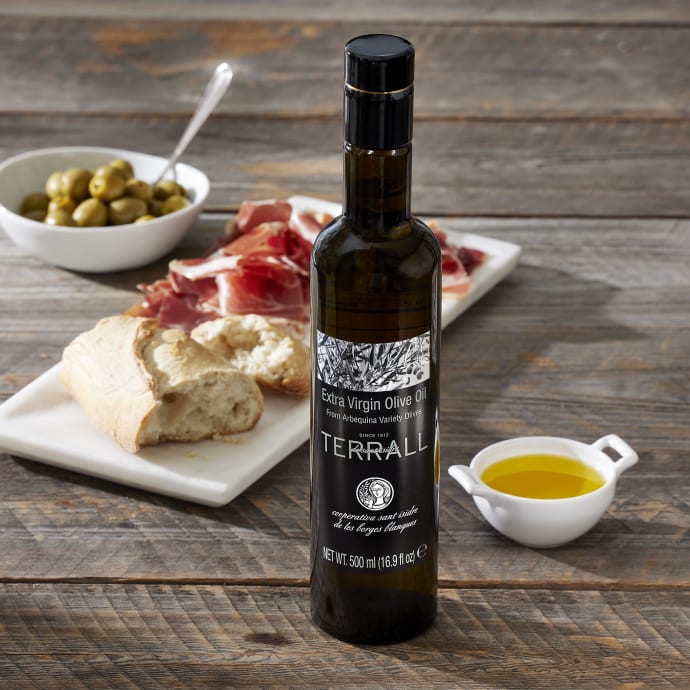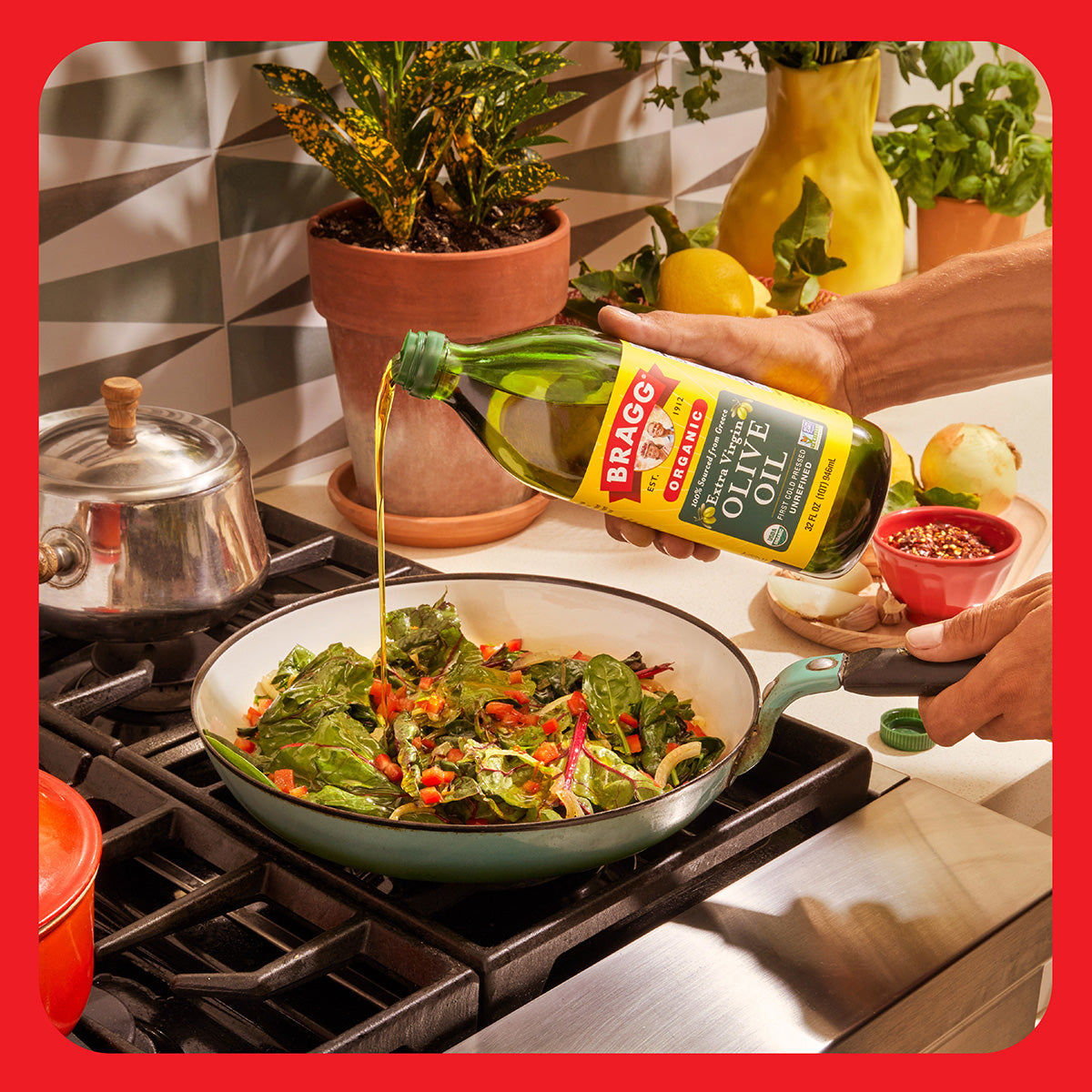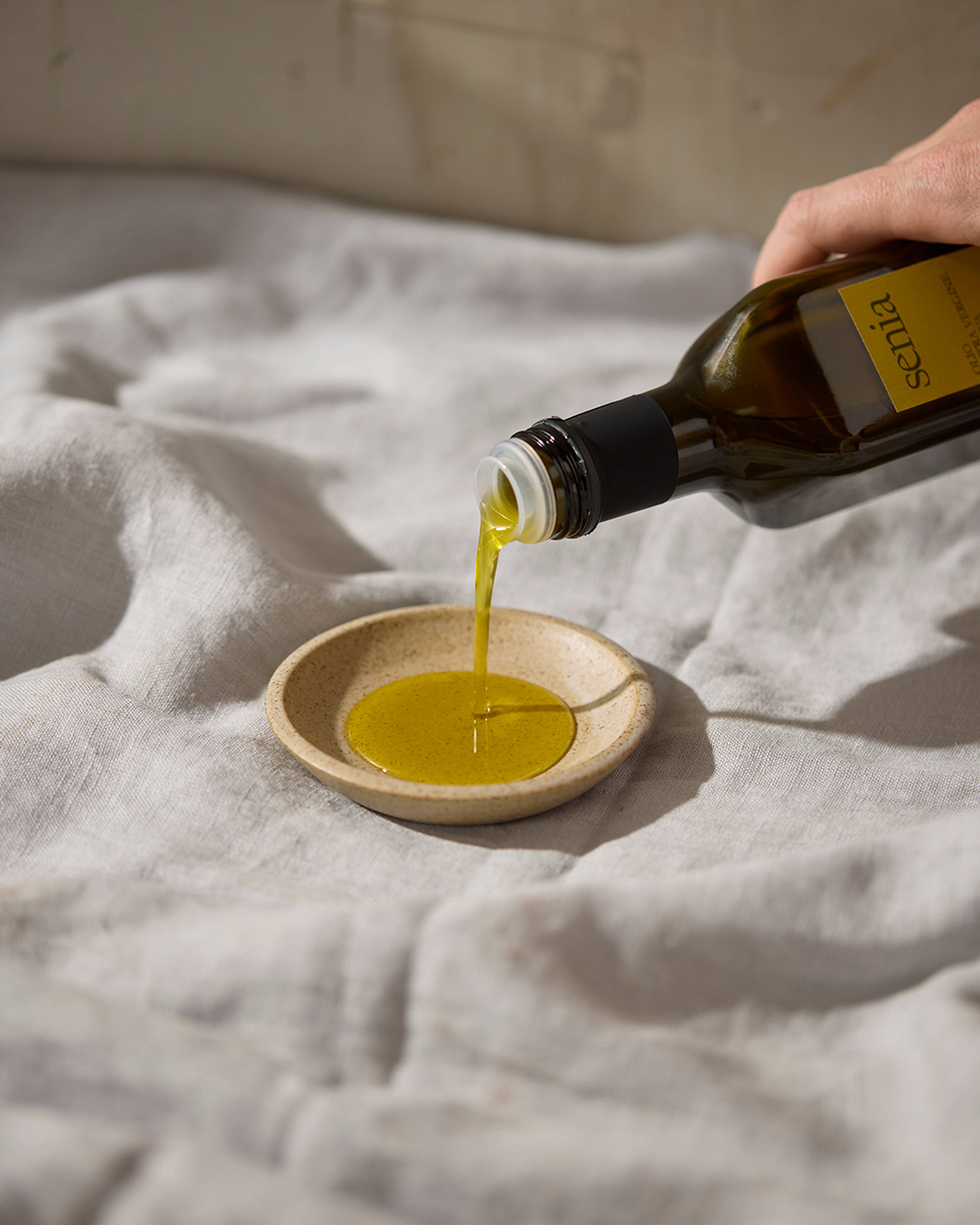Extra Virgin Olive Oil Benefits: How It Supports Healthy Cholesterol Levels
Extra Virgin Olive Oil Benefits: How It Supports Healthy Cholesterol Levels
Blog Article
Exploring the Various Kinds Of Olive Oil and Their Uses, Consisting Of Additional Virgin Olive Oil
The exploration of olive oil includes a diverse variety of kinds, each offering distinct tastes and culinary applications. Additional virgin olive oil, renowned for its superior top quality and health and wellness benefits, functions as a staple in many cooking areas, yet it is only one facet of this diverse ingredient. extra virgin olive oil benefits. Various other ranges, such as pure and polished olive oils, likewise necessitate interest for their unique properties and uses. Recognizing these differences can substantially influence both cooking strategies and flavor accounts. What, then, should one take into consideration when choosing the appropriate olive oil for a particular cooking endeavor?
What Is Olive Oil?
Originated from the fruit of the olive tree, olive oil is a staple in Mediterranean food and a crucial ingredient in different cooking applications. This functional oil is produced by pressing whole olives, resulting in a liquid that varies in fragrance, flavor, and color relying on the kind of olives made use of, the region of growing, and the extraction process. Olive oil is mostly composed of monounsaturated fats, particularly oleic acid, which is known for its prospective health and wellness advantages, consisting of anti-inflammatory residential or commercial properties and cardiovascular support.
In enhancement to its culinary uses, olive oil has a long history of application in conventional medicine and skincare, owing to its rich antioxidant content (extra virgin olive oil benefits). The oil is commonly utilized in dressings, marinates, and for cooking techniques such as sautéing and roasting. Its unique flavor profile can improve the taste of various dishes, making it an important ingredient for both home cooks and specialist cooks
Moreover, olive oil is celebrated for its role in the Mediterranean diet, which is related to countless health and wellness advantages. As understanding of these advantages grows, olive oil proceeds to get popularity worldwide as a basic element of a healthy lifestyle.
Sorts Of Olive Oil
Comprehending the various kinds of olive oil is necessary for both culinary fanatics and health-conscious consumers. Olive oil is classified largely based on its removal method and top quality, which considerably affects its taste, wellness, and scent benefits.

Light olive oil, despite its name, refers to a lighter taste and not reduced calories. It is suitable for those seeking a more subtle preference in dressings and marinades. Additionally, there are flavorful olive oils instilled with herbs, seasonings, or citrus, which can boost meals without the need for additional flavoring.
Each sort of olive oil serves details culinary objectives, and comprehending these differences permits consumers to make informed selections that line up with their food preparation designs and health and wellness objectives.
Additional Virgin Olive Oil
Extra virgin olive oil (EVOO) is extensively related to as the best quality olive oil offered, well known for its abundant flavor and numerous wellness benefits. To be identified as extra virgin, the oil should be produced from fresh olives utilizing mechanical processes, without using solvents or excessive heat. This thorough method protects the oil's all-natural flavors, anti-oxidants, and healthy fats, causing a product with a low level of acidity level of much less than 0.8%.
EVOO is bountiful in monounsaturated fats, particularly oleic see here now acid, which is linked to decreased swelling and improved heart health. It additionally consists of polyphenols, effective antioxidants that might offer safety impacts versus chronic illness. The taste account of EVOO can vary substantially relying on the olive variety and region of manufacturing, varying from grassy and fruity to durable and sharp.

Culinary Use Olive Oil

In cooking, olive oil can be utilized for sautéing, toasting, and cooking, providing a much healthier choice to butter or various other fats. Its high smoke factor makes it appropriate for different cooking techniques, while its antioxidants add to a heart-healthy diet regimen. Drizzling olive oil over finished recipes, such as pasta, fish, or smoked veggies, can raise flavors and add a touch of elegance.
Moreover, olive oil plays a considerable role in baking, where it can change standard fats in recipes for bread and pastries, imparting dampness and a refined preference. It additionally works as a base for infused oils, permitting cooks to explore flavors such as garlic, natural herbs, or chili, additionally broadening its culinary potential. Overall, olive oil's flexibility makes it crucial in both home and expert kitchens.
Choosing High Quality Olive Oil
When selecting top quality olive oil, it's vital to take into consideration a number of essential aspects that affect the item's scent, health, and taste advantages. Decide for extra virgin olive oil (EVOO), which is obtained from the initial cold pushing of olives and contains the greatest degrees of anti-oxidants and useful substances. Look for oils that are accredited link by identified companies, as this frequently makes sure adherence to rigorous quality requirements.
The product packaging also plays a considerable function in maintaining the oil's integrity. Pick oils stored in dark glass bottles or tins to safeguard versus light destruction. Take notice of the harvest date; fresher oils use premium taste and dietary value, so select products that are within 18 months of their harvest.
In addition, think about the beginning of the oil. High-quality olive oils frequently come from certain areas known for their distinct flavor profiles, such as Italian, Spanish, or Greek oils. Lastly, be conscious of the taste; a great high quality olive oil must have an equilibrium of fruity, bitter, and sharp notes, showing its splendor and intricacy. By assessing these elements, you can ensure you are choosing the best olive oil for your cooking demands.
Final Thought
In summary, the exploration of different types of olive oil exposes distinct attributes and applications, with extra virgin olive oil standing for the pinnacle of high quality due to its reduced level of acidity and high antioxidant material. Recognizing the different varieties of olive oil permits for notified selections in cooking techniques, my company promoting much healthier techniques while enhancing the total gastronomic experience.
Derived from the fruit of the olive tree, olive oil is a staple in Mediterranean food and a key component in numerous culinary applications.The most common kinds of olive oil consist of refined olive oil, pure olive oil, and light olive oil.Additional virgin olive oil (EVOO) is extensively concerned as the highest possible quality olive oil offered, popular for its rich flavor and many wellness advantages. Opt for additional virgin olive oil (EVOO), which is acquired from the first cold pressing of olives and consists of the greatest levels of antioxidants and advantageous compounds.In summary, the exploration of various kinds of olive oil exposes distinct features and applications, with additional virgin olive oil representing the peak of top quality due to its low acidity and high antioxidant content.
Report this page